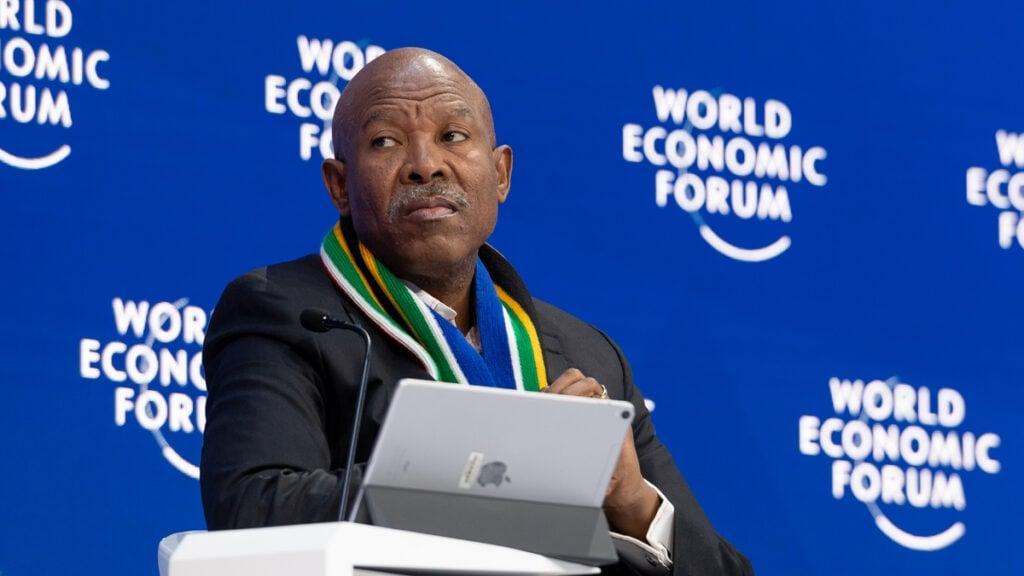Africa-Press – South-Africa. A fresh wave of tariffs on goods imported into the United States threatens to raise global inflation and weaken emerging market currencies, including the rand.
This may translate into elevated inflation in South Africa, prompting the Reserve Bank to maintain higher interest rates for longer and potentially even raise rates further, depending on the extent of the rand’s weakening.
Coupled with this will be the economic impact of tariffs on South African goods to the United States, which could result in the country’s growth dropping closer to 0% for 2025.
This is feedback from Efficient Group Chief Economist Dawie Roodt, who outlined the impact of the latest tariff announcement to Daily Investor.
US President Donald Trump sent a letter to President Cyril Ramaphosa stating that, effective 1 August 2025, a 30% tariff will be applied to all products from South Africa.
This gives the country some time to try to negotiate lower tariffs for its goods exported to the world’s largest economy.
Roodt explained that the impact of tariffs goes far beyond economic activity and growth, as it impacts various elements of the economic landscape.
The imposition of tariffs by the United States is likely to have a negative impact on investor confidence in South Africa, resulting in reduced capital inflows into the country.
This is likely to result in slower economic growth and a weaker rand against the dollar, with potentially significant consequences.
“The rand is already a weak currency, but it is trading slightly weaker than normal because of what is going on,” Rood explained.
“The most important reason for that has to do with confidence. A lack of confidence in an economy is a very bad thing.”
Roodt said this is one of the reasons why interest rates have declined more slowly than expected and why they remain relatively high compared to developed economies.
If a full-blown trade war breaks out and investors withdraw capital from emerging markets, such as South Africa, the currency will suffer.
A weaker currency makes it more expensive to import goods, increasing costs throughout the economy and pushing prices higher. This necessitates elevated interest rates to prevent higher inflation and keep rising prices in check.
Another factor is the disruption of tariffs to international trade, which will put upward pressure on inflation, Roodt said.
Elevated inflation may also lead to a weaker currency, but confidence in the South African economy is the primary concern.
South Africa getting lucky
Old Mutual Wealth’s Izak Odendaal
South Africa has gotten lucky over the past few weeks, with a weaker dollar offsetting the impact of local political events on the rand.
A weaker dollar has also helped the country avoid the worst consequences of shifting global trade policies and geopolitical tension.
Old Mutual Wealth’s chief investment strategist, Izak Odendaal, recently explained that a weaker dollar has prevented the rand from falling through the floor amid elevated local political tension.
Odendaal said South Africa is a small boat adrift on a big ocean and will be buffeted around by global events and superpowers.
However, the country obsesses over local politics, not without reason or cause, but often misses the global picture and how it impacts South Africa.
Odendaal explained that the country has been fortunate with the timing of local political tensions and global events, resulting in their relatively limited impact on the country.
For example, over the last week, the rand barely reacted to the news that President Cyril Ramaphosa removed a DA deputy minister from his Cabinet, threatening the stability of the Government of National Unity (GNU).
Typically, this would result in the rand weakening significantly as investors view the GNU as vital for any improvement in South Africa’s economic fortunes.
However, the US dollar has been on the back foot, which has prevented the rand from falling significantly. The trade-weighted US dollar index has fallen 10% this year.
The rand lost ground against the pound and the euro after Whitfield’s firing and is weaker year-to-date against both.
The dollar matters more for investments, but the European currencies are important for trade and tourism. The greenback also matters more for interest rates, since South Africa’s main import, oil, is priced in dollars.
This was a lucky turn of events for South Africa, as it prevented the rand from rapidly weakening against the dollar, which would have resulted in significantly higher inflation.
Simply put, South Africa can still get lucky, but luck is not a strategy. Odendaal said the country needs to get its house in order to benefit when the global environment is favourable truly and to shield itself when it is not.
For More News And Analysis About South-Africa Follow Africa-Press






